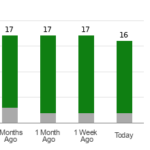As Ford (NYSE:F) unveiled its Q2 earnings report, the data painted a picture of a road ridden with challenges. The automaker’s sales growth slowed, coming in at 1% year-over-year, hampered by a cyberattack that disrupted critical dealership software. The cyber woes, coupled with hefty borrowing costs and economic ambiguity, led to a notable slump in demand for Ford vehicles.
Ford’s Performance in Q2
Breaking down the numbers, Ford’s truck business was the standout performer, clocking in at 5% growth with sales of 308,920 units. The highlight was the F-Series trucks, with 199,463 units sold – the best Q2 performance since 2019.
On the flip side, electric vehicle (EV) sales soared by an impressive 61% year-over-year to 23,957. Ford’s optimism for its EV lineup, especially the Mustang Mach-E and F-150 Lightning, remains unwavering, drawing in a fresh wave of customers.
Moreover, hybrid vehicle sales staged a remarkable comeback, surging by 56% year-over-year to hit 53,822 units, setting a new quarterly sales record for Ford’s hybrid division.
Evaluating Ford as an Investment
Turning to the investment landscape, analysts maintain a cautious optimism towards Ford’s stock, landing on a Moderate Buy consensus rating, underpinned by seven Buys, four Holds, and one Sell. Over the past year, Ford shares witnessed a downturn of over 9%, casting a shadow over investor sentiment. However, the average price target of $15.36 suggests a potential upside of 19.5% from the current levels.





